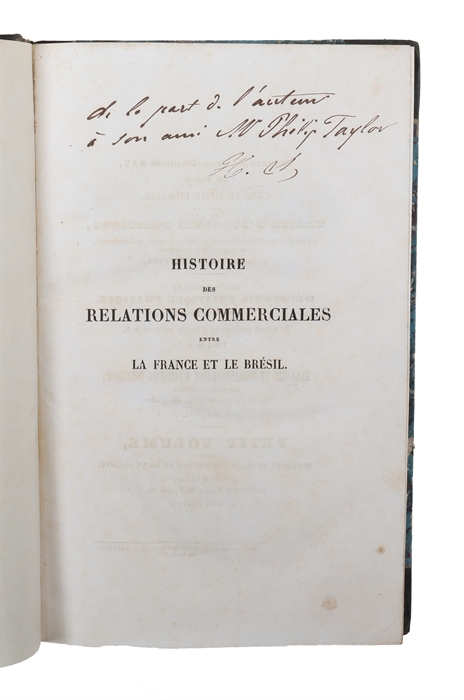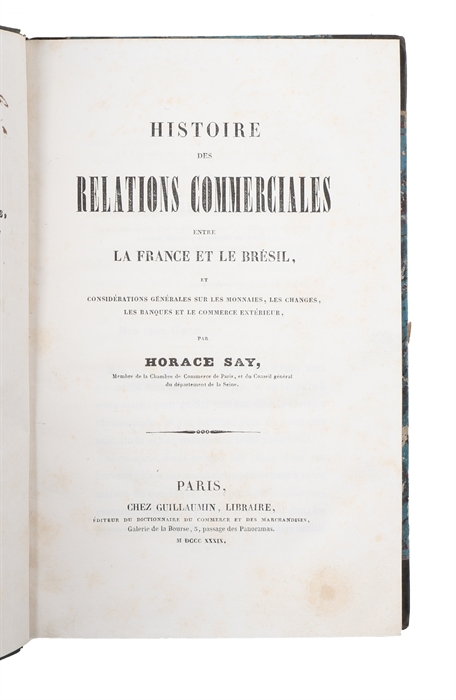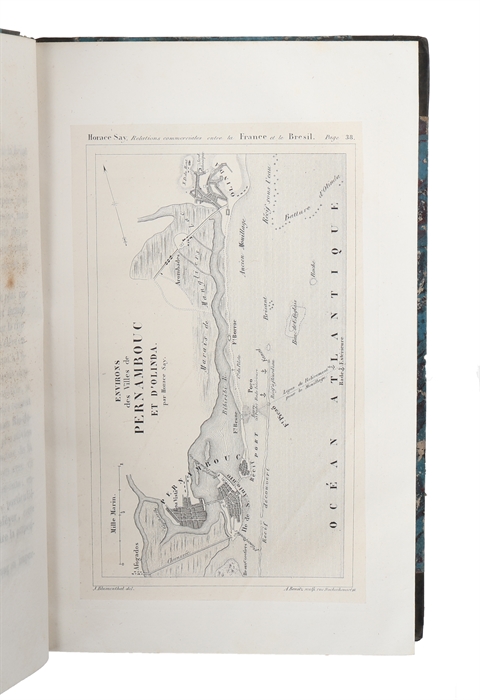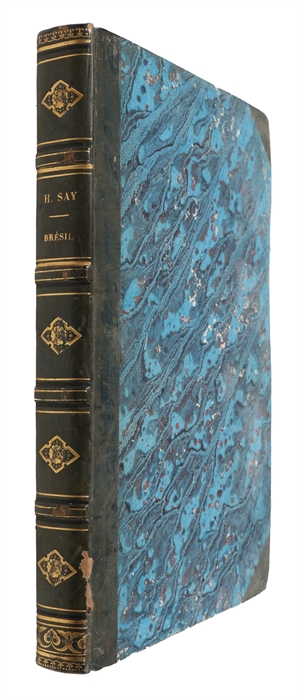FIRST EDITION WITH AN EXCEPTIONAL PRESENTATION INSCRIPTION
SAY, HORACE.
Histoire des relations commerciales entre la France et le Bresil.
Paris, Guillaumin, 1839.
8vo. In contemporary half calf with gilt lettering and ornamentation to spine. With author's presentation inscription to half title: "de la part d. l'auteur / á son ami M. Philip Taylor / H. S." (i.e. English: "From the author to his friend Mr. Philip Taylor, H. S. (i.e. Horace Say)). A few scratches to spine and internally with light occassional brownspotting, but overall a nice and clean copy. 333, (3) + 5 plates of which 2 are folded.
Uncommon first edition – with author’s presentation inscription to English industrialist Philip Taylor - of Say’s seminal work in which he analyzes Brazil not just descriptively but analytically, treating it as a case study for how free trade, open markets and liberal institutions can foster economic development and growtH. This embodies the classical liberal belief in progress through commerce - linking Enlightenment ideals to the economic realities of the 19th century. In the present work Say reflects and extends the liberal economic philosophy of his father famous Jean-Baptiste Say, celebrated for "Say’s Law" and his advocacy of free markets. While Jean-Baptiste laid the theoretical foundation for classical economics in France, his son Horace applied these ideas to real-world contexts - analyzing Brazil as a proving ground for liberal trade principles. The work bridges theory and practice showing how the younger Say carried forward and globalized his father’s economic legacy. Say identifies Brazil as a model for future French colonial economics - not in terms of conquest but through integration into global trade networks. This early liberal vision contrasts sharply with later exploitative imperial models and shows how economists like Say envisioned colonialism as an economic partnership shaped by industrial and technological exchange. He anticipates the country's economic take-off and presents it as a promising model for France’s emerging colonial ambitions, especially in the tropics. The book is deeply informed by the liberal economic thought of the time and offers a fine insight into the global economic thinking of 19th-century France. The present copy was given by Say to Philip Taylor (1786–1870), an English industrialist and engineer. He was a pivotal figure in Franco-British industrial exchange during the 19th century. A Protestant like Say, Taylor settled in Marseille, where he played a crucial role in advancing industrial technologies, especially in the sugar refining sector. His connection with the Say family was not only personal but also professional - he collaborated closely with Horace Say’s uncle, founder of the Say sugar refinery (later Béghin-Say), to introduce British-designed machinery into French industry. The friendship between Say and Taylor reflects a broader internatioanl network of liberal thinkers, industrialists and reformers who were shaping the global economy during the first half of the 19th century. This dedication documents a personal and ideological alliance at the heart of early industrial globalization linking two pivotal figures at the intersection of theory and industry. Kress III, C.4986
Not in Einaudi or Mattioli.
Order-nr.: 62435




